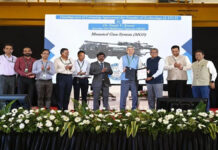The Chief Minister has provided relief to daily-wage employees by forming a committee under the leadership of the Chief Secretary to explore their regularization. This decision not only brings hope to thousands of workers but also helps pacify the ongoing protests in the state legislature over the issue. The move has reignited optimism among daily wagers, who have long struggled for permanent employment status. However, this is not the first time such a committee has been constituted. A similar initiative was taken during the previous BJP-PDP government, though it did not lead to significant outcomes. This time, the Chief Minister has instructed the newly formed committee to prepare a roadmap within six months, keeping in mind all legal and financial aspects of regularizing these employees. The directive sends a strong message that the government is not indifferent to the plight of workers. This decision is particularly important in light of the recent clashes between protesting employees and the police. As thousands of daily-wage workers attempted to lay siege to the legislature building, law enforcement resorted to lathi charges, further aggravating the situation. The formation of this committee now serves as a much-needed assurance to the workers that their concerns are being addressed at the highest levels. Jammu and Kashmir has over 60,000 daily-wage workers who have been demanding regularization for years. Their struggle is not without merit—many of these employees have been working for more than a decade, often performing essential duties under challenging conditions. While it is true that any decision on their permanent status must be made considering the financial health of the state, the government cannot indefinitely delay the resolution of their issues. If there are feasible ways to absorb them into permanent positions, the government should implement them at the earliest. The committee now has the responsibility to submit a comprehensive report within the stipulated timeframe, considering all relevant aspects. At the same time, the employees must also be patient and allow the government the necessary time to formulate a practical solution. While their frustration is understandable, an immediate resolution to such a complex issue is not possible. For the employees, the wait for regularization has been long and arduous, but it appears that they are now closer than ever to a resolution. While patience is difficult, it is also necessary. The path ahead may not be easy, but there seems to be no better alternative at present. The government must now ensure that this initiative does not meet the same fate as previous committees and that meaningful action follows these promising words.

Dogra Herald is the media of J & K, breaking language and geographical barriers, connecting J & K to the rest of India.
0191 245 4946
info@dograherald.com
Latest articles
Shah Faesal arrested at Delhi airport, sent to Srinagar: Reports
iamjkstarr - 0
IAS officer-turned-politician Shah Faesal was detained at the Indira Gandhi International Airport in New Delhi at 12.30 am Wednesday. He was sent back to...
Union Cabinet to meet on March 31
iamjkstarr - 0
NEW DELHI: Union Cabinet is scheduled to hold a meeting on March 31.
The meeting will be chaired by...
Kejriwal says Yamuna to breach danger mark this evening, urges people to move to safer places
iamjkstarr - 0
Water level in the Yamuna is expected to cross the danger mark this evening, Delhi Chief Minister Arvind Kejriwal said, urging people in low-lying...





























